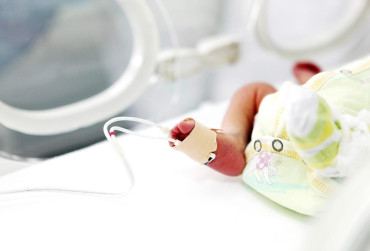Why Are Preterm Infants Often Sent To A Neonatal Intensive Care Unit (NICU)?

Babies born early are often sent to the hospital's neonatal intensive care unit (NICU) because they need special, intensive care. The NICU has specialized medical professionals and equipment for treating newborn babies who need that type of care.
The NICU can be scary and overwhelming for parents of premature babies. The unit sometimes has a lot of activity and equipment that makes a lot of sounds. However, many preterm babies who spend time in the NICU heal and grow and get to go home after short stays. Unfortunately, there are instances in which already scary situations are made worse due to medical malpractice in the NICU. In those cases, it’s essential that you speak to a NICU malpractice attorney as soon as possible to help your family.
When Are Babies Most At Risk For Going To The NICU?
The majority of the babies who are admitted to the NICU are there because they were born prematurely. That typically means they are born before 37 weeks of pregnancy, have a birth weight of less than 5 lbs. 8 oz., and have a medical condition that needs specialized care.
Some factors may make a baby more likely to be admitted to the NICU after birth, including:
- Abnormal delivery presentation
- Fetal distress (insufficient oxygen to the baby’s brain)
- Cesarean or forceps delivery
- Umbilical cord issues
- Low blood sugar
- Maternal infection, including herpes, chlamydia, or group B streptococcus (GBS)
- Too much or too little amniotic fluid
- Premature rupture of membranes (water breaking)
- Respiratory distress
- Medication or resuscitation in the delivery room
- Multiple pregnancy (twin, triplet, etc.)
- Bleeding
- Need for special treatment or procedure, such as a blood transfusion
- Need for extra monitoring, oxygen, medications, or IV therapy
- Seizures
If any of the above are managed improperly, conditions can worsen, and the baby may be injured. It’s the medical staff’s responsibility to act quickly and appropriately to treat a premature infant. If they delay or don’t treat the baby properly, the baby could suffer irreversible brain damage or even death. When that happens, parents may be able to hold the responsible parties liable in a birth injury or wrongful death lawsuit.
What Are Common Reasons Preterm Babies Need Care In A NICU?
The most common reason that newborns are admitted to the neonatal intensive care unit is premature birth. Various conditions and problems can occur when a baby is born too early, and they are best treated in a safe and controlled environment like the NICU. Some of the complications that may happen when a baby is premature include:
- Low blood sugar – Hypoglycemia, or low blood sugar, is most commonly seen in premature babies, babies whose mothers suffered gestational diabetes, or babies with an infection.
- Difficult delivery – Difficult births can cause decreased blood flow and oxygen to the baby. When this happens, neonatologists may treat the baby with whole-body cooling, a treatment that helps decrease brain injuries due to insufficient blood flow.
- Respiratory distress syndrome – RDS is a respiratory disorder that occurs when a newborn’s lungs are not fully developed. Babies with severe cases of RDS have to be placed on a ventilator.
- Maternal chorioamnionitis – This is a medical condition in which bacteria infect the chorion and amnion membranes that surround the baby. It puts the baby at a high risk of developing an infection.
- Sepsis – Sepsis is more common in premature babies than full-term babies. Antibiotics may be used after birth, depending on the type of infection and lab test results.
How Does Medical Malpractice Cause NICU Injuries?
Unfortunately, fragile infants are injured in the NICU daily due to medical errors. Some of the ways this happens include when doctors, nurses, or other medical professionals:
- Fail to maintain clean or sterile techniques
- Fail to order the appropriate medical tests
- Fail to appropriately and safely administer medications
- Fail to diagnose and treat infections
- Fail to appropriately secure the airway in a timely manner
- Fail to monitor oxygen and ventilation settings
- Fail to provide treatment for jaundice, hypoglycemia, hypoxic-ischemic encephalopathy, or other conditions
- Fail to appropriately treat intracranial hemorrhages
Why Contact A NICU Malpractice Lawyer In Pennsylvania?
If your baby was injured in or after being in a Pennsylvania NICU, and you believe it was due to medical malpractice, it’s time to find legal representation. A NICU medical malpractice attorney in Pennsylvania will have the experience and the ability to represent you and your family in a birth injury or wrongful death lawsuit.
Whether or not your baby has regained good health, you’ve likely suffered emotionally and financially after your child’s injury. At Ross Feller Casey, our medical malpractice attorneys have helped families like yours with cases like yours. We know that monetary compensation can’t fix your baby’s injuries, but it can help relieve the financial burden you may be facing.
Disclaimer: Ross Feller Casey, LLP provides legal advice only after an attorney-client relationship is formed. Our website is an introduction to the firm and does not create a relationship between our attorneys and clients. An attorney-client relationship is formed only after a written agreement is signed by the client and the firm. Because every case is unique, the description of awards and summary of cases successfully handled are not intended to imply or guarantee that same success in other cases. Ross Feller Casey, LLP represents catastrophically injured persons and their families in injury and wrongful death cases, providing legal representation in Pennsylvania and New Jersey.





